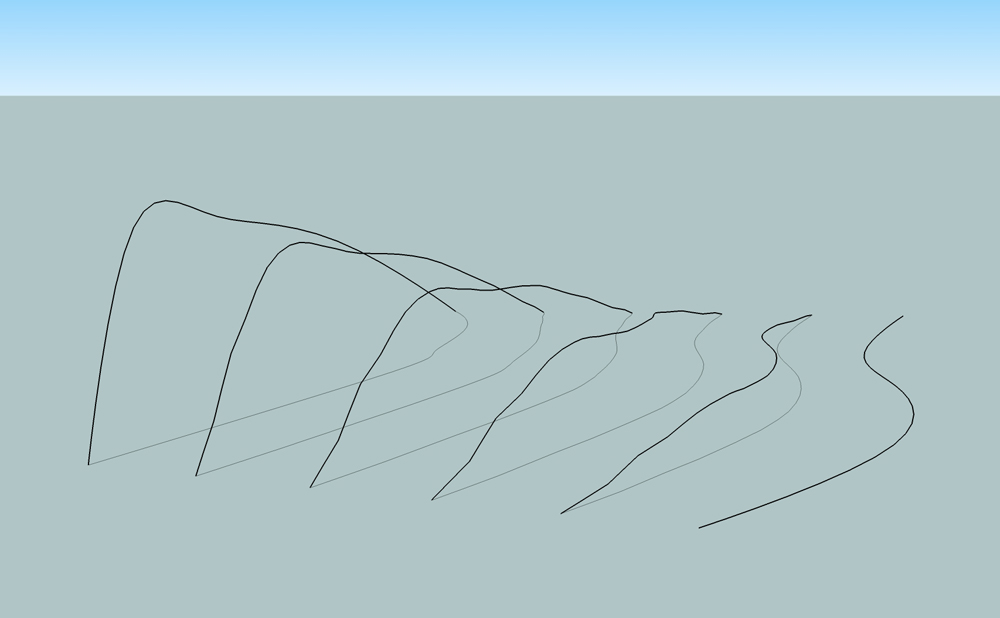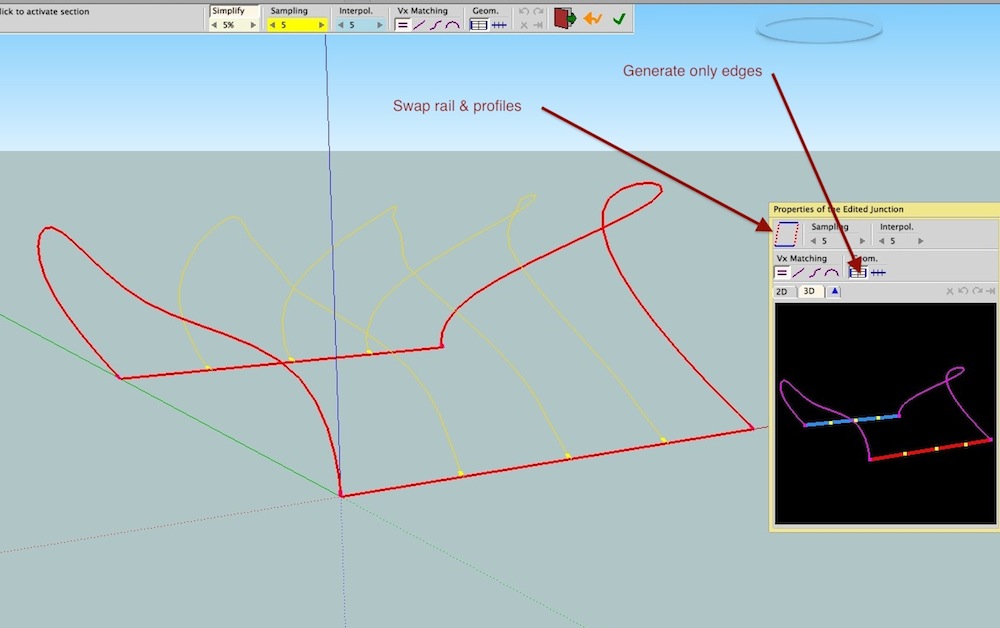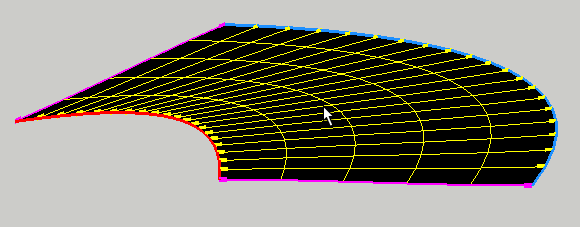[Plugin] BezierSpline - v2.2a - 22 Apr 21
-
@unknownuser said:
Hey Joel
Yeah, I think that would be very useful. (blend curve by bezier -- or whatever it may be called)It be sweet if the first control point in on each end of the line were subsequently locked to the direction of the line being blended to. (ie- the construction line or guide if doing the blend manually)
Jeff and Joel,
Very good idea. I will do something in a frefresh of BezierSpline.
Fredo
-
nice! i'm glad you're into the idea.
i think it will be great and i'm sure a bunch of other people will be into it once they see what it does. -
Sounds like a great addition to an excellent tool!
 Good idea, guys.
Good idea, guys. -
More is the friend of Better!

-
Sweeeet. fredo responded to my post! im a little starstruck now...
-
it's impossible for me to edit polylign....
-
NEW FEATURE SUGGESTION: "MEAN CURVE"
Hi again Fredo
I know it hasn't been long since my last feature suggestion ("blend curve by bezier"), but here's another one you might be interested in:
The "mean curve" command in Rhino creates an intermediate or "average" curve between two existing curves, which is especially useful for adding detail to contour maps and such. Is it possible for Bezierspline to do the same?
I have attached an image showing how I imagine it would be done manually; i.e. draw connecting lines linking corresponding vertices on the two original curves, then drawing a third curve linking all the midpoints of those connecting lines to create an "average" curve.
What do you reckon? The added advantage of Bezierspline automating this is that the generated curve would be an editable bspline as well. Does anyone else think this is a good idea?
Cheers,
Joel

-
merci fredo!!!!!
-
@ivreich said:
NEW FEATURE SUGGESTION: "MEAN CURVE"
Does anyone else think this is a good idea?Cheers,
Joel
hey Joel
i'm not quite convinced that your manual method is actually giving a mean curve.. i assume you're just connecting vertices then drawing segments through the midpoints.. i guess it sort of looks ok in the example you posted but it's not going to always work out that way.. see these two curves (well, one curve that's been copy/flipped)..try your manual method on those and you'll soon run into problems.
while it might be possible to make a plugin that can do an actual mean curve (or something close to it) in sketchup, i think it's going to be much more difficult then simply playing connect the dots. -
Hi Jeff
Thanks for replying. You're right; the manual method is simply "connecting the dots" as you say. It was the most logical way of illustrating my point. I think I see your point though; the manual method presumes a more regular spacing/matching of vertices between the two curves.
I suppose complex pairs of curves would have to be "rebuilt" (pardon the Rhino lingo; I've just finished working at a firm where Rhino is pretty much a religion: if it isn't built in Rhino it isn't worth looking at) to match each other's vertices before the manual method can be used.
I don't know the math behind creating mean curves, it was just an idea that popped into my head one day at work. Any other suggestions?
Cheers,
Joel
-
@ivreich said:
I suppose complex pairs of curves would have to be "rebuilt"
this is where sketchup really starts to breakdown as far as trying to make it nurbs like..
you can, in essence, rebuild a curve using this plugin.. if you right click on one of the curves in the mean.skp then go BZ- Convert To --> Polyline Divider (or polyline segmentor) then you'll be able to set the curve's vertices to an equal spacing (or to an evenly divided # of segments)..the problem is, you end up with too many vertices in the looser parts of the curve Or too few in the tighter areas. (at least in the example sketchup.. these commands come in very handy for many situations)..
re: mean curve in rhino.. personally, i don't use it or have a use for it (that i know of
 )but one thing that sort of surprises me is that illustrator actually has a mean curve command that is seemingly superior to rhino's.. with illustrator, you can choose the amount of divisions (ie- 2 new mean curves in between the original ones).. you can do it with rhino by repeating the command as long as you want an odd amount of average curves but even then, it takes a lot longer than doing it once..
)but one thing that sort of surprises me is that illustrator actually has a mean curve command that is seemingly superior to rhino's.. with illustrator, you can choose the amount of divisions (ie- 2 new mean curves in between the original ones).. you can do it with rhino by repeating the command as long as you want an odd amount of average curves but even then, it takes a lot longer than doing it once..but hey, i guess i'm going way off topic here

-
It's relatively easy to do it.
Actually, I have this type of function embedded in Curviloft
The only remaining part would be to build a decent GUI for selecting the curves.Fredo
-
oh yeah. i guess with curviloft you can do exactly this as long as the curves are in 3D space (i can't get it to work if both curves are flat and on the same plane)

-
EEbyRails will make the average-curve between the two rails if the Profiles are a straight-line curve made from two equal length edges [use divide on a line drawn between the curves ends and weld as a curve]. This works in full 3d AND in 2d even if the curves are flat and even coplanar... Just erase the mesh's ribs and use the 'spine' edges to weld into an averaged-curve...
Obviously the average is 1/2 but if you wanted to weight the result - let's say a 3rd then divided the profile line in three, erase the ribs and the two mid- spines are at 1/3 from their nearest 'rail'...
-
the thing with curviloft is that you can choose to generate only the edges if you wish so there's no deleting surfaces afterwards etc..

-
Jeff... doh! moment for me...

Use EEbyLattice and chose 'Rail' only option to get a central spine curve [auto-welded and grouped] without the needed to mess on erasing ribs made from EEbyRails
-
@tig said:
Jeff... doh! moment for me...

Use EEbyLattice and chose 'Rail' only option to get a central spine curve [auto-welded and grouped] without the needed to mess on erasing ribs made from EEbyRails [attachment=0:1z22r8l6]<!-- ia0 -->Capture.PNG<!-- ia0 -->[/attachment:1z22r8l6]
[attachment=0:1z22r8l6]<!-- ia0 -->Capture.PNG<!-- ia0 -->[/attachment:1z22r8l6]lol!
i had forgotten about that option as well -
@unknownuser said:
(i can't get it to work if both curves are flat and on the same plane)
Jeff,
Do you have a particular model where it does not work. In general, that should give the results.

By the way, you can choose the number of internediate curve via the #seg parameter (but not the spacing).
Fredo
-
hi Fredo,
it's a lot faster for me to just explain it in a video.. i hope it makes sense
[flash=700,428:2w2q5yyr]http://www.youtube.com/v/bl7TMkBWpZc?version=3&hl=en_US&rel=0[/flash:2w2q5yyr]
-
Jeff,
Well spotted!
-
Options for generating geometry is one feature of Curviloft which is not terminated. I may however add the option to keep either / or the mesh lines in a next release quickly
-
in Skinning, I purposedly removed the meshing of surfaces that are planar, precisely to avoid too many polys and faces. Unfortunately, I did not provision an option to inhibit this feature.
Thanks again. I'll try to incorporate all this in a next release
Just one remark: with your skinning approach, you don't need to divide the segment. Curviloft can do it for you via the Sampling parameter.
Fredo
-
Advertisement







